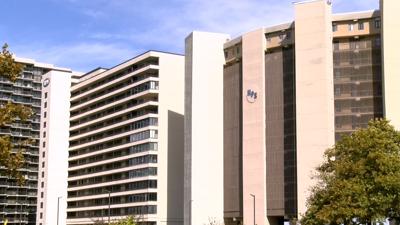WORCESTER COUNTY, Md. -- Large-scale buildings in Maryland will have to start dialing back their emission of greenhouse gases over the next few years. It stems from a law state leaders passed two years ago.
In 2022, Maryland lawmakers passed the Climate Solutions Now Act. A result of that legislation is electrification requirements for covered buildings over 35,000 square feet.
According to the Hotel Motel Restaurant Association, the majority of hotels in Ocean City use gas to make sure guests have hot water to shower. The same goes for sinks, indoor pools and the industrial dryers that make sure people have clean towels and sheets.
Michael James' company, James Hospitality, manages eight hotels across the resort town. He told us making the switch to electric would not only be expensive.
"It could be hundreds of thousands of dollars," said James.
It might not even be possible in some cases.
"Some of the hotels in Ocean City were built back in the 60's or 70's, you cannot just upgrade the electric capacity to that degree, so it's really not practical," said James.
Going fully electric might not be necessary though. Maryland's Department of the Environment(MDE) reports buildings can meet state standards by becoming more efficient.
How to make your building more efficient(according to MDE):
- Conduct an energy audit
- Install LED lighting
- Purchase ENERGY STAR certified electric equipment
- Make weatherization improvements to the buildings envelope including air sealing and insulation
- Retro-commission building systems
- Install control systems for plug loads, lighting, HVAC equipment
What will be necessary is reducing emissions.
Timeline:
- 2025: owners of covered buildings must report energy data to MDE
- 2030: buildings must meet interim standards
- 2040: buildings must meet final standards, including net-zero emissions
Susan Jones, Executive Director of the HMRA said these changes won't happen overnight, especially for buildings that end up needing to make a switch from gas to electric.
"I think it really is going to have to be step-by-step because nobody can rip out their electric panels and do all of the retrofitting and the upgrading in a short amount of time," said Jones. "I mean that would displace guests, it might knock out a bunch of rooms and if you think about it, in condo buildings or apartment buildings it really would displace tenants."
Despite the difficulties that may be associated with these mandates, building owners who fail to meet the standards set by the state could be subject to fines.
Fees would start at $234 per metric ton of excess emissions in 2031. That number would gradually rise to $270 per metric ton by 2040. Fines would increase by $4 each year after.





